

Achieving
carbon peaking and carbon neutrality is an extensive and profound economic and
social systemic change. As the main battlefield of controlling carbon emissions
and the basic unit of policy implementation, cities are the powerful grasps for
the comprehensive development of the "double carbon" strategy. As a
strategic technology of a new round of scientific and technological revolution
and industrial transformation, artificial intelligence is accelerating its
integration with various fields of economy and society, and has gradually
become an important means to help cities achieve the goal of "double
carbon".
In this
context, the National Industrial Information Security Development Research
Center, in conjunction with Baidu Intelligent Cloud, wrote the White Paper
on Artificial Intelligence Helping Cities to Achieve the Goal of "Double
Carbon", which combs the connotation and key areas of the city's
"double carbon" goal against the background of the "double
carbon" strategy, and analyses the implementation path of artificial
intelligence helping cities to achieve the goal of "Double Carbon".
And put forward the corresponding measures and suggestions.
1. The
report points out the key areas of "double carbon" in cities. "
The goal of "double carbon" has become an important proposition and
challenge for urban sustainable development. To implement the "double
carbon" goal, cities need to start from two aspects of reducing carbon
emissions and increasing carbon absorption, promote energy conservation,
emission reduction and energy efficiency improvement in high-emission areas,
reduce carbon emissions from the source, increase carbon absorption, and
develop carbon recycling economy.
2. The
report points out that AI helps the implementation path of "double
carbon" in cities. Artificial intelligence, as the core driving force of
the new round of industrial transformation, has three impacts on urban
"double carbon" emissions. First, it helps to solve the carbon
emissions problems caused by data center operation and AI model development.
Second, the use of intelligent sensors, satellite remote sensing technology to
help monitor urban carbon emissions; The third is to enable the key areas of
"double carbon" in cities, form industry solutions, improve and
optimize the efficiency of various operational links, use energy efficiently
and reduce carbon emissions.
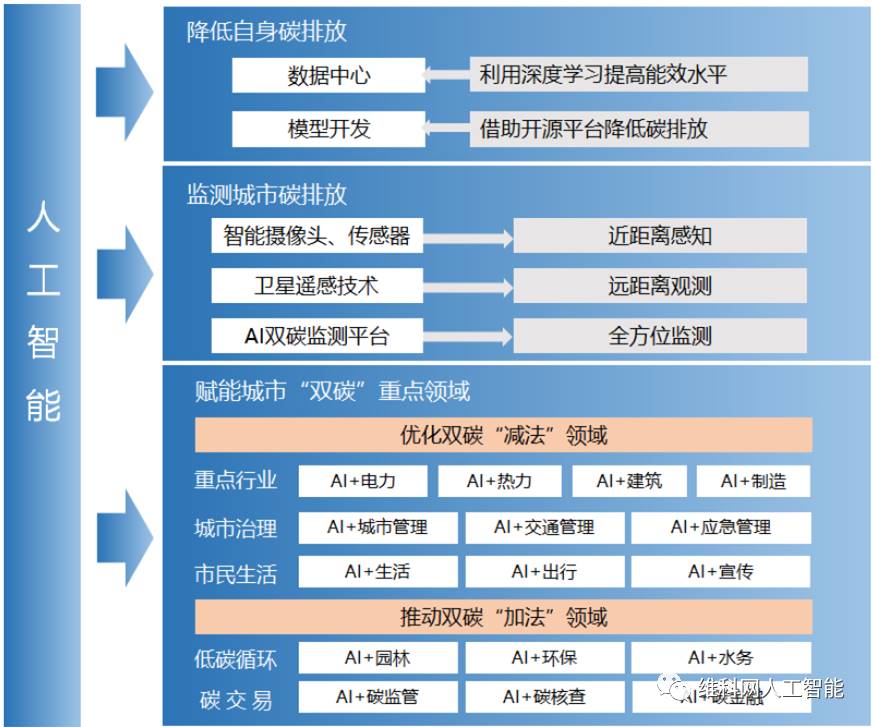
3. The report points out that AI helps the practice of "double carbon" cities. It has been a long time for China to carry out the work of urban carbon emission reduction in an all-round way. Various government departments and localities have actively tried to explore the sustainable development model of cities from different perspectives, and have achieved positive results in carbon reduction. Artificial intelligence can effectively improve the efficiency of urban construction and management, reduce the pressure of carbon emissions, but limited by the amount and quality of data, landing rules and other factors, the current landing application is still in the shallow primary stage, Beijing, Shanghai, Suzhou and other cities to use artificial intelligence technology to help urban low-carbon development. It can provide a reference for the whole country to promote the "double carbon" work.
实现碳达峰、碳中和是一场广泛而深刻的经济社会系统性变革。城市作为控制碳排放的主战场和政策落地实施的基本单元,是“双碳”战略全面开展的强有力抓手。人工智能作为新一轮科技革命和产业变革的战略性技术,正在加快与经济社会各领域融合发展,并逐渐成为助力城市“双碳”目标达成的重要手段。
在此背景下,国家工业信息安全发展研究中心联合百度智能云撰写《人工智能助力城市“双碳”目标达成白皮书》,以“双碳”战略为背景,梳理城市“双碳”目标的内涵与重点领域,分析人工智能助力城市“双碳”目标达成的实施路径及城市探索实践,并提出相应的举措建议。
1、报告指出,城市“双碳”重点领域。“双碳”目标已成为城市可持续发展的重要命题和挑战。城市落实“双碳”目标需要从降低碳排放和增加碳吸收两方面着手,推动高排放领域节能、减排、提高能效,从源头减少碳排放、增加碳吸收,发展碳循环经济。
2、报告指出,AI助力城市“双碳”实施路径。人工智能作为新一轮产业变革的核心驱动力,对城市“双碳”排放具有三方面的影响,一是助力解决数据中心运行、AI 模型开发自身产生的碳排放问题;二是利用智能传感器、卫星遥感技术等助力监测城市碳排放;三是赋能城市“双碳”重点领域,形成行业解决方案,提升优化各运行环节的工作效率,高效使用能源、压缩碳排放。
人工智能助力城市“双碳”目标的总体框架
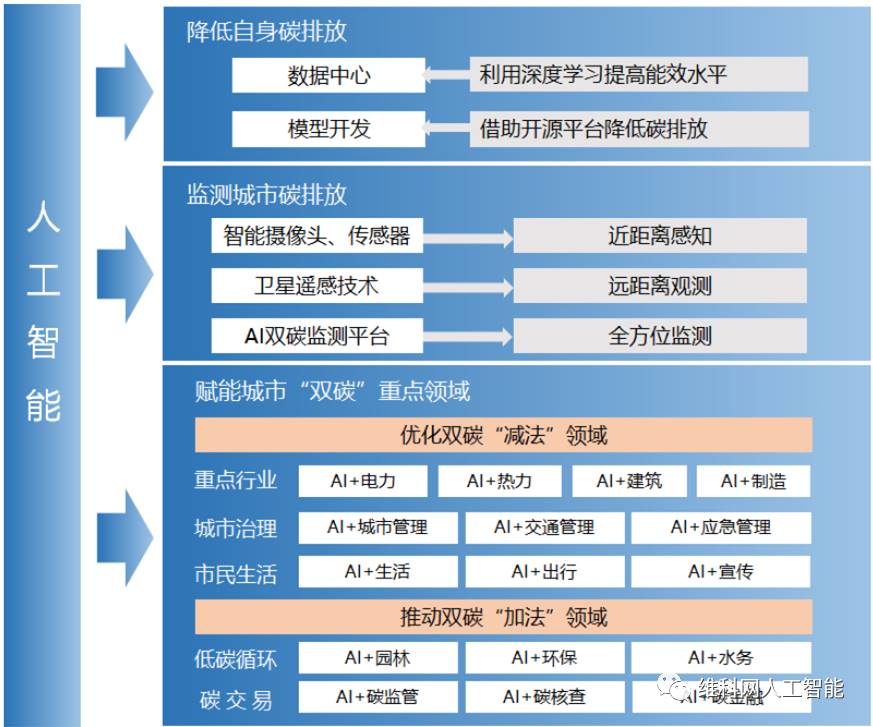
3、报告指出,AI助力城市“双碳”城市实践。我国全面开展城市碳减排工作已有较长时间,政府各部门、各地都积极努力尝试探索,从不同角度探索城市的可持续发展模式,在降碳方面取得了积极成效。人工智能能够有效提升城市建设、管理各环节工作效率、降低碳排放压力,但受限于数据量及质量、落地规则条件等因素,目前的落地应用仍处于浅层初级阶段,北京、上海、苏州等城市对运用人工智能技术助力城市低碳发展做出了一些探索,形成了一定经验,可为全国推动“双碳”工作提供借鉴。
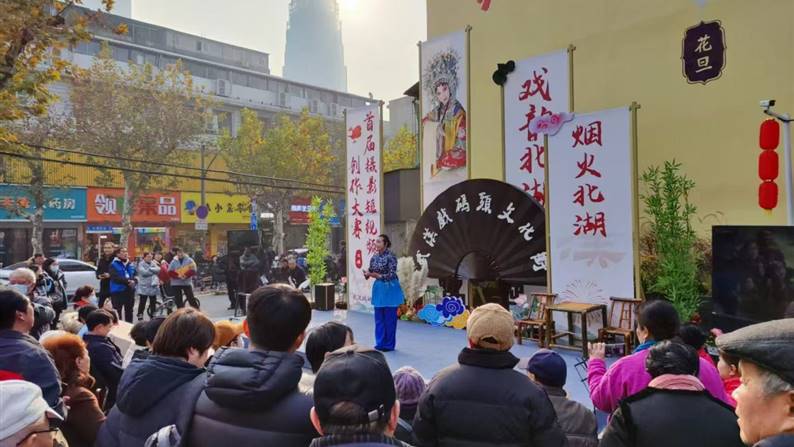
打造绿色低碳街区,奏响幸福美好生活最强音
10-18 · 来源:湖北省武汉市江汉区北湖街道环保社区 · 作者:湖北省武汉市江汉区北湖街道环保社区
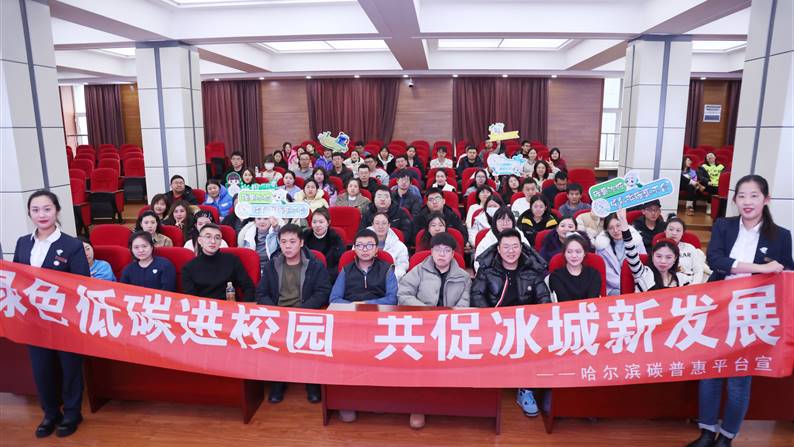
“碳惠冰城”:东北首个市级平台的“双碳”实践与冰城示范
10-15 · 来源:哈尔滨产权交易所有限责任公司 · 作者:哈尔滨产权交易所有限责任公司
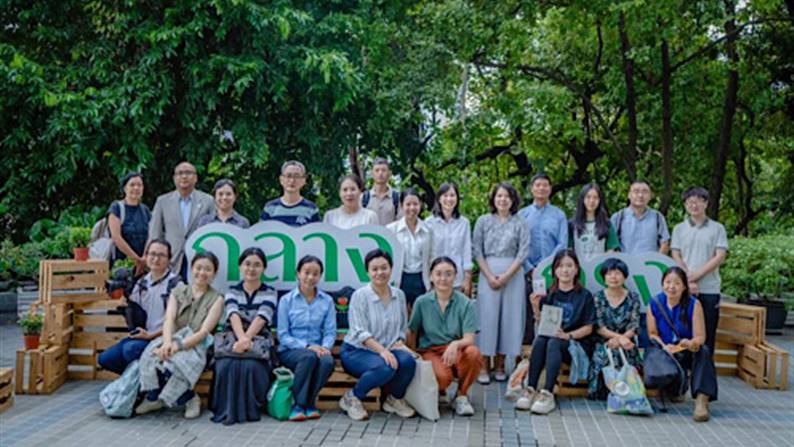
亚洲气候治理新篇章:中国公益代表团参访曼谷气候周,探索跨区域合作新路径
10-10 · 来源:公益时报 · 作者:公益时报